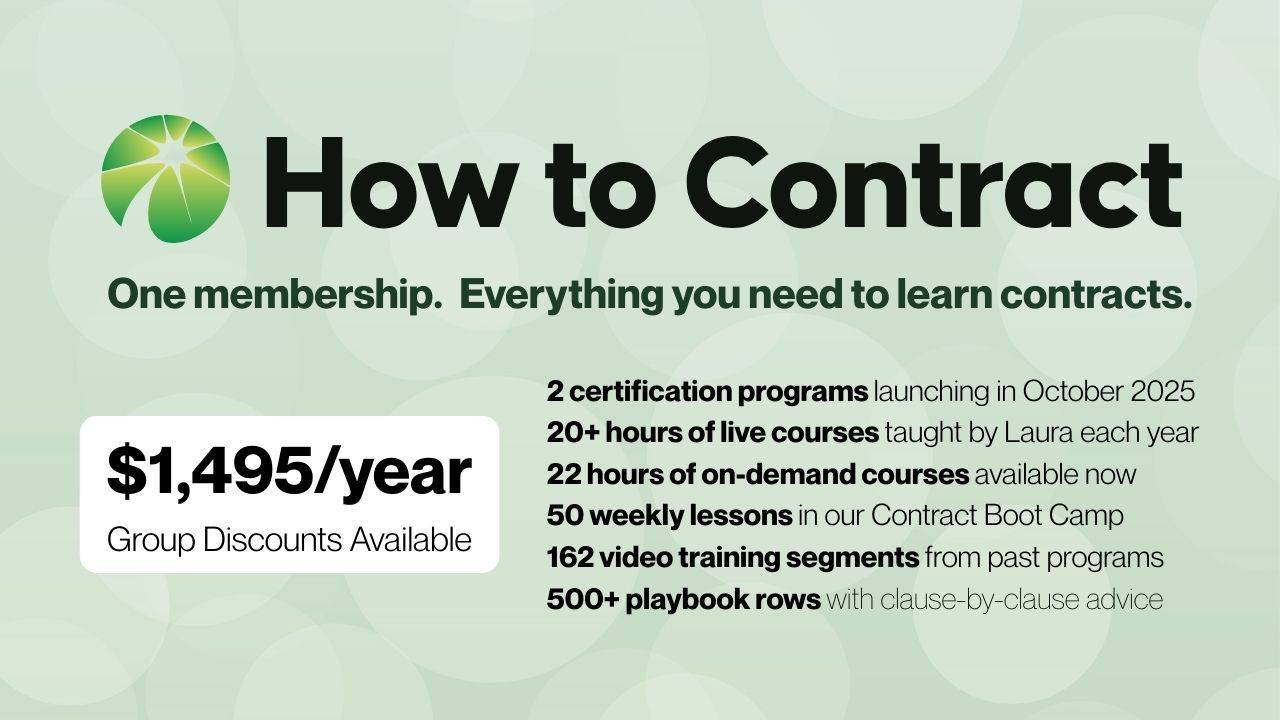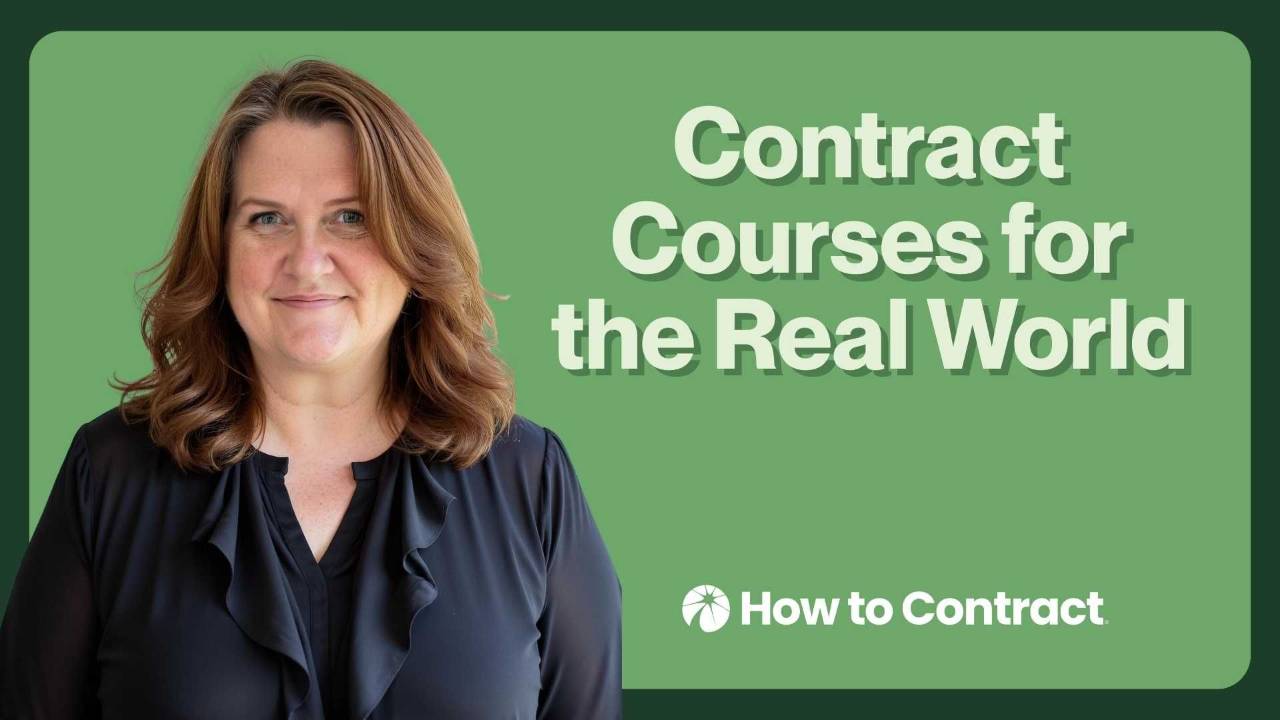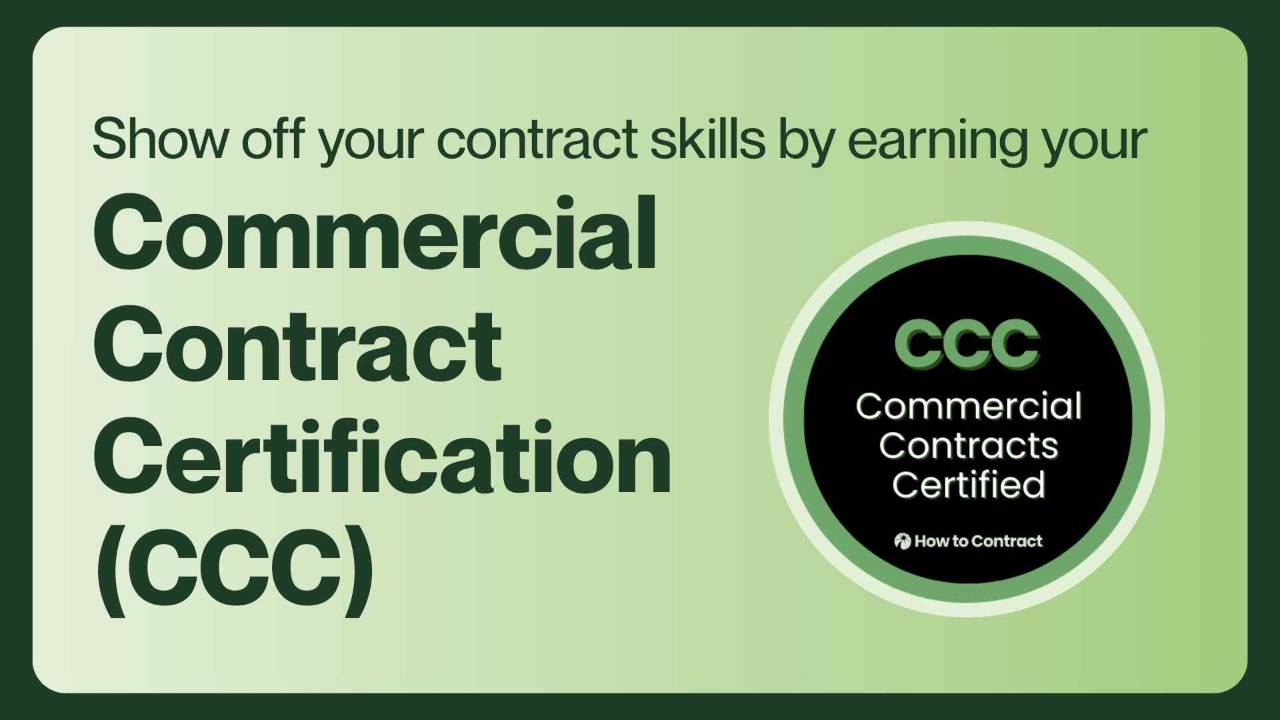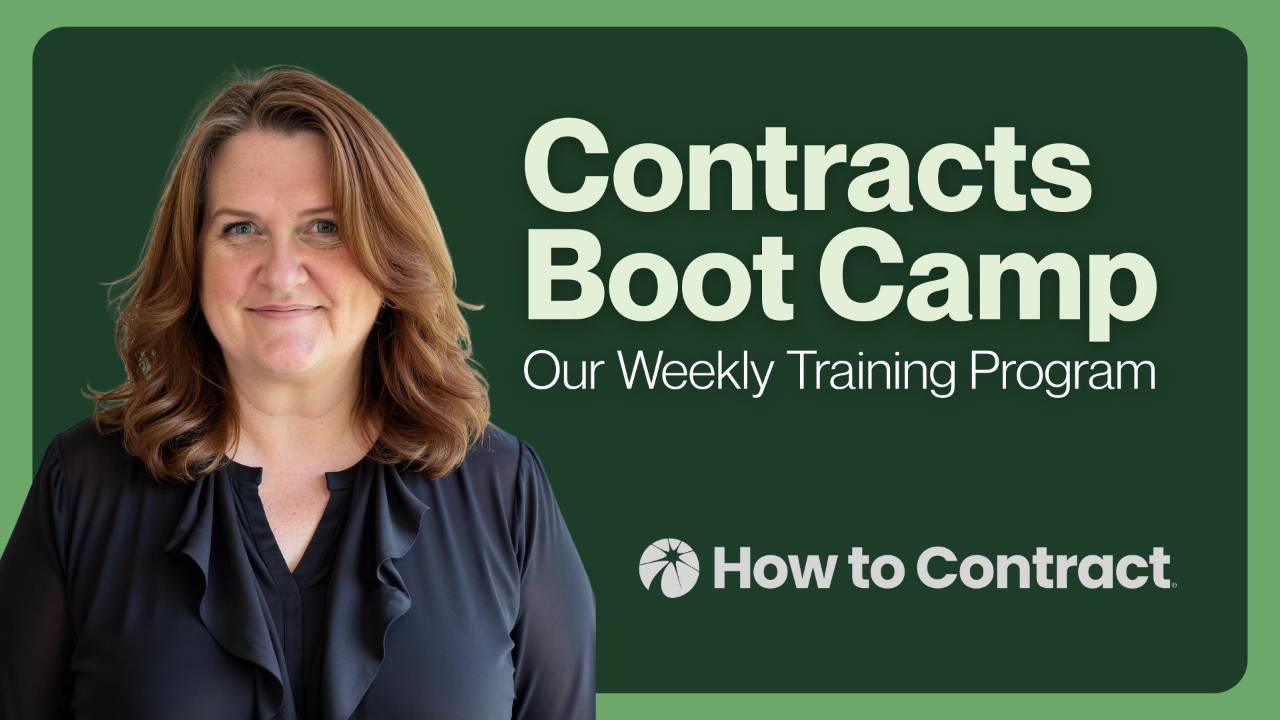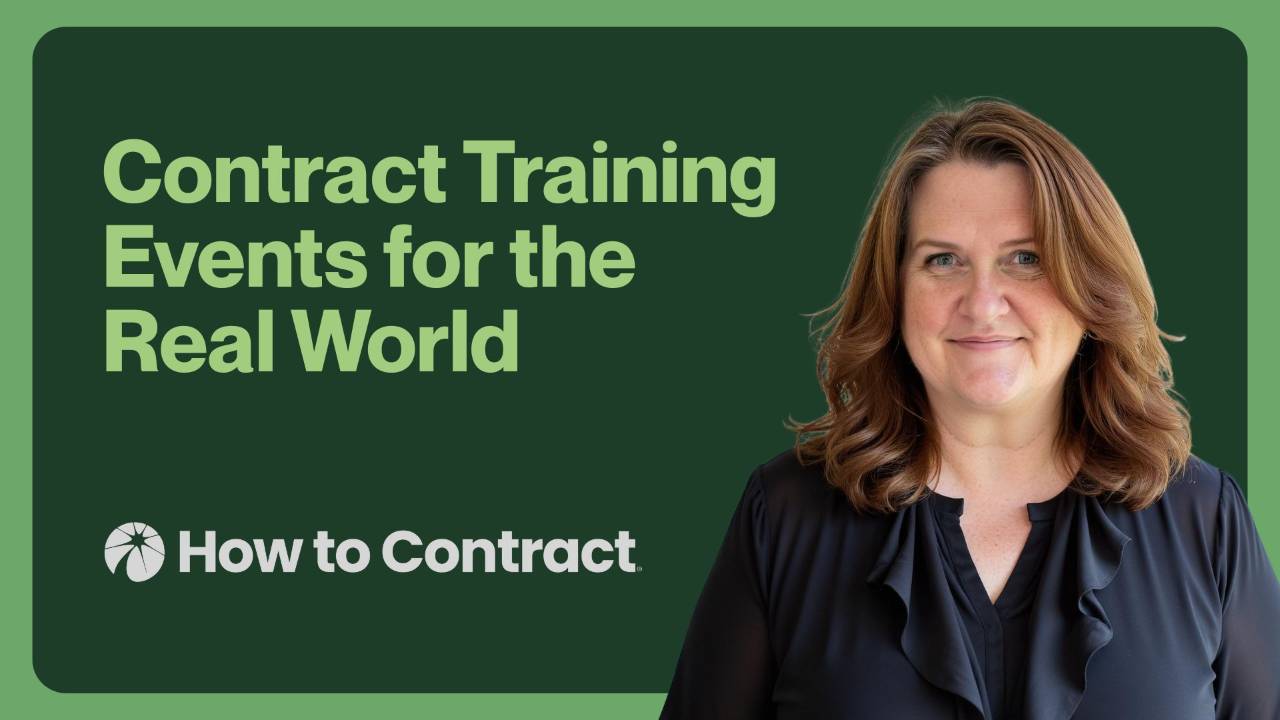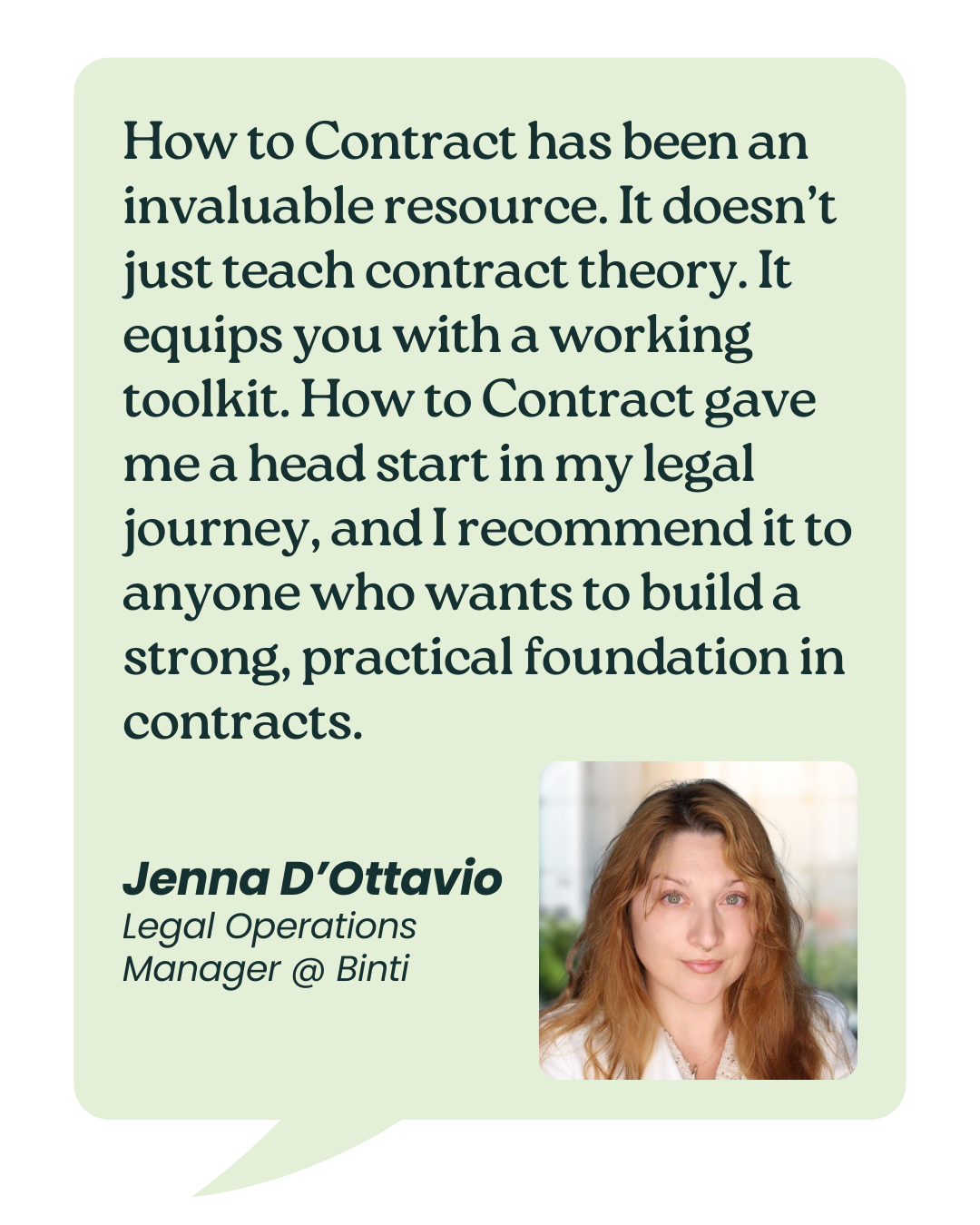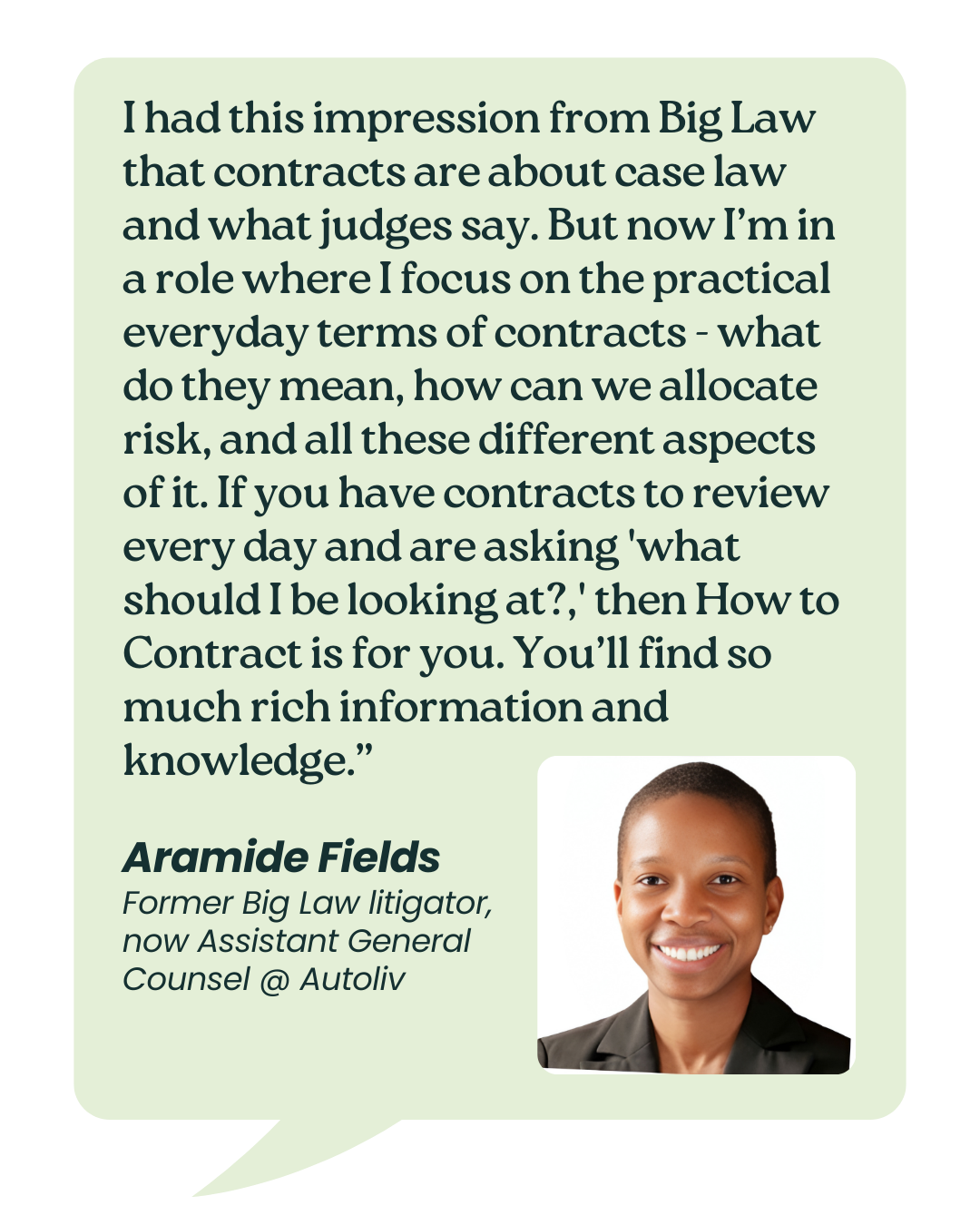
How I Contract: Amy Duvanich on Contract Review and Common Pitfalls
Avoiding Common Negotiation Mistakes
What are the most common contract negotiation mistakes? How would you avoid making them?
Companies thinking that they can handle contract negotiations without a skilled transactional attorney — using non-attorneys, attorneys without the correct expertise, offshoring, etc.
The company might (operative word is might… less skilled individuals tend to take far longer to complete tasks, so the billable hours rack up quickly) save some money in the short term, but the end result is almost certainly not the same.
When my client is the one that has done this, it is always unfortunate (it often comes out in the context of reviewing an executed contract to advise, and the business is shocked to learn what they agreed to… or jumping into a negotiation once a lot of damage has already been done).
During an initial round of revisions or comments, it is immediately apparent when I am negotiating with an individual who lacks substantial experience. Put the right people in the right jobs!
Advice for New Contract Lawyers
What advice would you give to your younger self when you started working with contracts? Why?
Deals need to be win-win.
I used to think that my client winning was the only goal, but that is unsustainable.
The other side needs to also get what they need out of the relationship, or a dispute will inevitably arise down the road.
Be detailed and transparent to ensure that there is a meeting of the minds when the deal is signed, and that will help lead to a long-lasting partnership.
Lessons Learned from Contract Experience
Could you share the biggest lesson you’ve learned while working with contracts?
If I can’t understand the reasoning behind certain language, I have learned to ask rather than assume.
Sometimes the answers are really interesting, and hearing them allows me to provide solutions that make more sense.
The most common answer is that the language was a holdover from a competitor’s contract they copied the language from or another deal where that language was necessary and that it actually doesn’t belong in the deal.
Mentors and Influences in Contract Law
If you could give a shoutout to one (or more) person who has influenced your life in contracts (or is your mentor), who would that be?
Shelby Boseman. He helped to provide a safe place for me to learn early in my career how to be an in-house attorney who the business really trusts and values.
Importance of Continuous Contract Training
Do you think lawyers and professionals need continuous contract training? Why/why not?
If you think you already know everything, you are a really dangerous attorney.
It is important to stay curious and open-minded to the business and legal aspects of contracts to continue to learn new things on the job.
More formal training is a great way to learn from the best and improve your abilities.
I look forward to attending ContractsCon – reach out if you want to meet up there!
Perspectives on AI in Contract Review
What interview question would you like to be asked and how would you answer it?
My first question would be: "Should AI be used in contract review?"
I firmly believe that AI will not replace transactional attorneys, but that transactional attorneys using AI will replace transactional attorneys who don’t use AI.
My clients expect me to do the best work in the least amount of time, and AI is a fantastic tool to enable that. If I didn’t know what I was doing, AI could get me in a lot of trouble. Incorrect advice is bountiful and you definitely cannot rely on it. But sticking your head in the sand and pretending that AI can add no value is a great way to let your peers leave you in the dust!
Suggestions for Future Interviews
Who should we interview next? Why?
Since I mentioned him… Maybe Shelby? I’m not sure how much contract negotiation he still engages in, though!
How to Contract's membership is designed to help you build real-world expertise with commercial contracts. Get access to our comprehensive system of live and on-demand courses, weekly lessons, detailed playbooks, and more. Join today!

